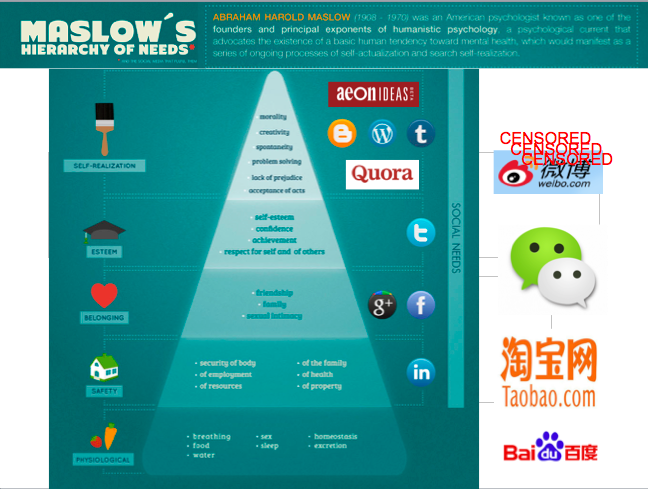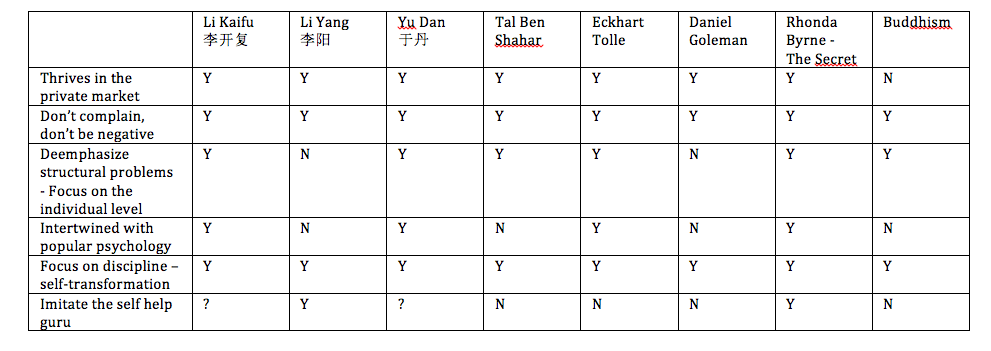Fauxpas #1: What gets Kaiser angry about self help? Why does he loathe such a wide genre without differentiating? Why does he feel ashamed for friends who have self help titles on their bookshelves? Why would he hide them like pornography if he had some? I have both on my shelves and I am rather not embarrassed.
Quite on the opposite of Kaiser’s usually rational approach, he talks irrationally about self-help, almost as if there was something unconscious in his own personality that emotionally rejects this literature genre. To stick with the cheese metaphor: its like Kaiser says “I detest cheese.” But he tasted only Gorgonzola. Of course there is much more than just Gorgonzola and he would most likely find some really tasty treats.
I didn’t even know “The Secret” by Rhonda Byrne and reading the synopsis it seems that it really is not worth anybody’s time, but if it gives some readers temporary relief, I can’t even exclude that it also does some good.
Let’s come to the point: the search for happiness, the interest in self-help, is essentially connected to our desire for transcendence and as such we must categorize the self-help genre according to Abraham Maslow’s hierarchy of needs. Kaiser hates all self-help literature, which addresses lower levels like security, relationships or esteem, but I am convinced that he would be interested in self actualization and transcendence self-help literature. That’s the area where self-help merges with religion and positive psychology.
Fauxpas #2: You discuss the question “Why can China as a collectivist country take up such a pragmatically American individualist phenomenon?”
I agree with Lin Yutang who wrote already in 1935: “The Chinese are a nation of individualists. They are family-minded, not social-minded, and the family mind is only a magnified form of selfishness.” Self-help has thus the same rich soil in China as it does in the US.
Fauxpas #3: You speak about the rise of lay Buddhism amongst young Chinese and ask why Buddhist literature is found next to self help literature?
Gents, because Buddhism was not meant to be a religion, but a psychological teaching of how to live better and how to escape man’s suffering. Buddhism is essentially the first form of self-help and Buddha was probably the first incarnation of what we today call an enlightened guru. The term guru has a negative charlatan-like connotation, but Buddha is free of this. 回头是岸 | turn inwards for salvation is a Buddhist core teaching which could also be translated with „deemphasize structural problems“.
Fauxpas #4: Hendriks decribes that the credibility of the self-help movement was lost for him, when he talked to a Mexican women and single mother with a minimum wages job in a sandwich store and concludes that “people who have to function in a highly competitive market environment and desperately need something to cling on to” read waste like “The Secret”. Some nasty laughs follow.
This is the part that irritates me most – apart from Kaiser’s generalizing introduction, which with such an unconscious hubris looked down upon all people who try to better their life – it actually hurts listening to this.
It’s always a question from which perspective you look at the self-help phenomenon. Are these people deplorable in all their misery? Yes. Is it sad to see them clinging on to charlatanic tales like “The Secret”? Yes. But it is by no means a reason to look down upon these people who just did not find another way to cope with the situation they live in. What I miss in this show, in particular from Kaiser and Eric, is a sense of empathy for the lot that these people have to cope with, for the burden that they have to carry.
We all know that social mobility is pretty restricted, even in relatively equal societies like Germany. If people who have enjoyed a good education or who have reaped the fruits of their ancestors’ social status and wealth talk like this about others’ misfortunes, I can only but think of Abraham Maslow’s pyramid of needs. It's easy to mock about the stupidity of Mexican, overweight, single mothers if one has been born into intellectual or financial bourgeoisie and therefore from the cradle to the grave is able to focus on flow, enjoyment, self-actualization and transcendence. It’s easy for an aristocrat to pity the slave for his basic desires and the way he tries to meet them. It is difficult for the aristocrat – in a broad sense – to emphasize with the suffering of his fellow beings. So after all, is Kaiser just a cynical snob? The aristocratic status is indicated in his nickname; the aristocratic demeanor is now public too. Kaiser, please confirm. Maybe it's also just frustration for working at baidu which is at the very bottom of the pyramid.
Fauxpas #5: Hendriks lists a few “self-help” authors, amongst them Daniel Goleman and his book EQ. Kaiser interjects: “Its bullshit. It just does not exist.” Kaiser please read “Working with EQ”. Goleman is a first rank scientist who provides a clear definition of EQ and an empirical study of its characteristics amongst corporate executives.
And last but not least I want to use the 6 characteristics used by Hendriks to define the self-help genre and show that they do not apply to most of the books that have been mentioned throughout the podcast. Again, it would be necessary to match the respective titles with the hierarchy of needs. Shahar, Tolle and Goleman are great reads for people who want to make progress in regard to flow, enjoyment, self-actualization and transcendence.


 RSS Feed
RSS Feed